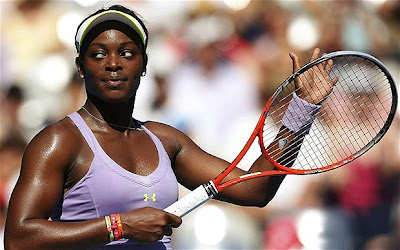Last night, the torch of American women’s tennis was passed from one
generation to the next, from a mentor to her protégé. Or something like
that. There are multiple issues with the narrative that sprung up in the
hours both leading up to and following Sloane Stephens’s surprising
victory over Serena Williams in the Australian Open quarterfinals. But
before getting to that, let’s acknowledge one remarkable plot point: for
the first time in her nearly two decades as a professional tennis
player, Serena Williams lost to an American younger than herself.
Stop for a moment and take that in. It’s a commentary both on Williams’s dominance of the women’s tennis world for much of the past decade and, more broadly, on the otherwise unremarkable state of American women’s tennis. Stephens’s three-set victory, we’re told, offers hope that the latter half of that statement might be a thing of the past.
Stop for a moment and take that in. It’s a commentary both on Williams’s dominance of the women’s tennis world for much of the past decade and, more broadly, on the otherwise unremarkable state of American women’s tennis. Stephens’s three-set victory, we’re told, offers hope that the latter half of that statement might be a thing of the past.






.jpg)
.jpg)


